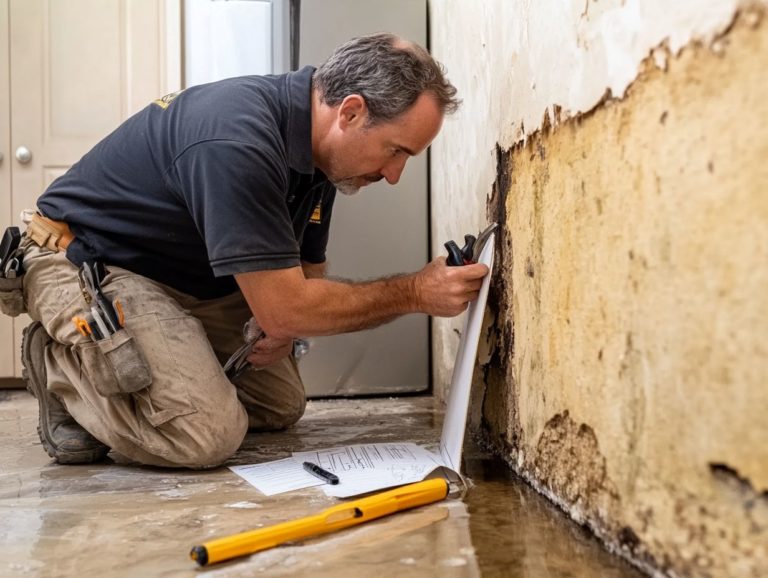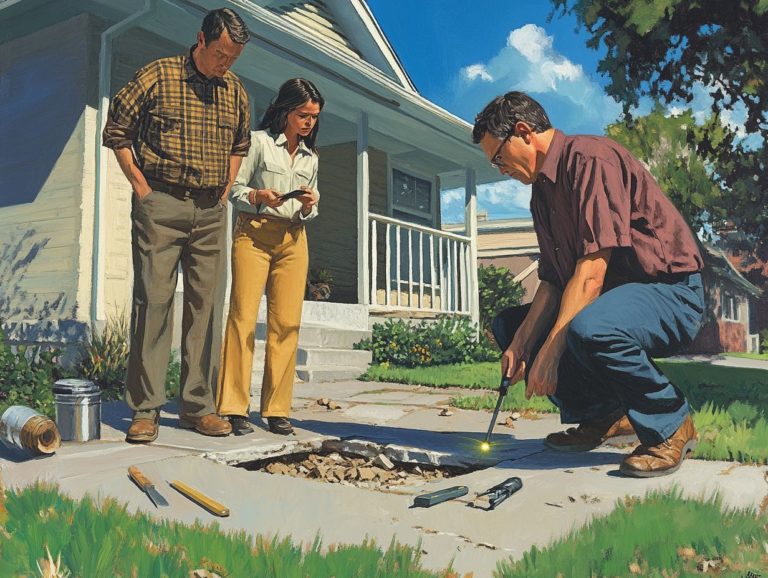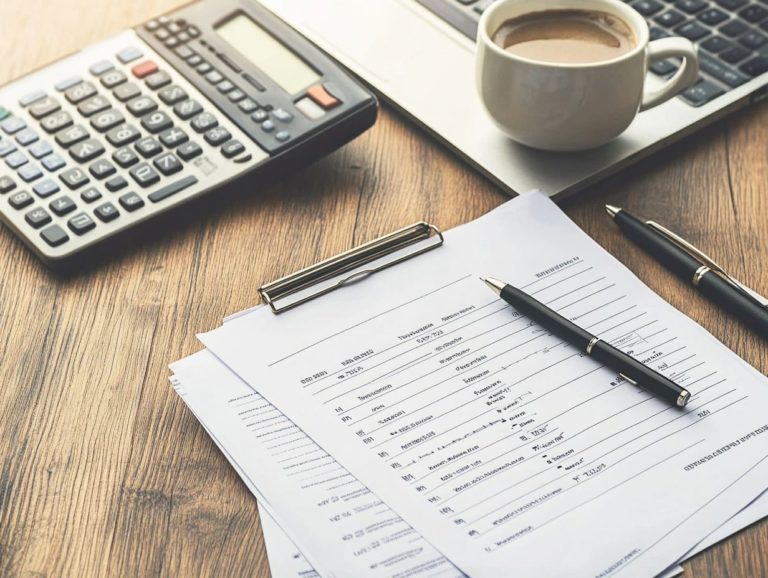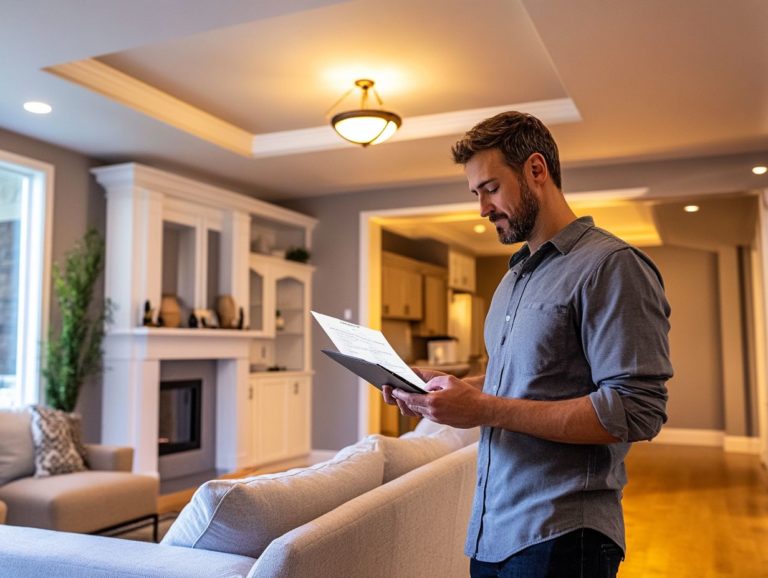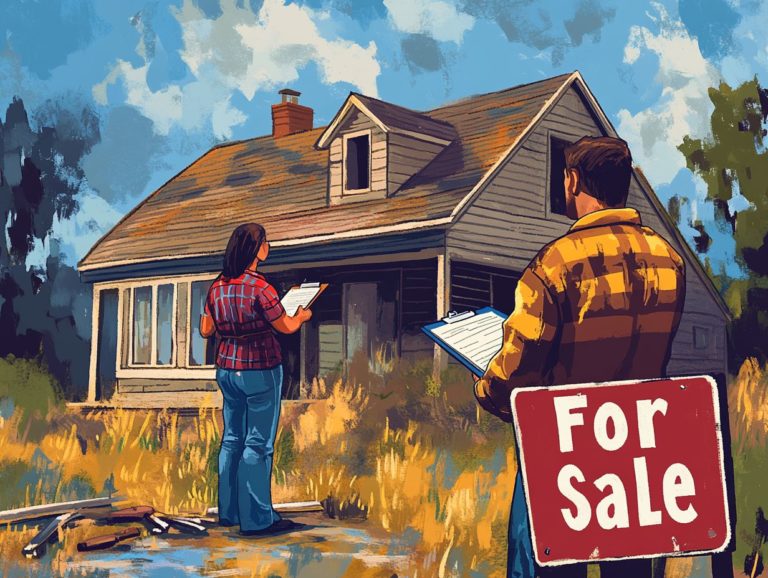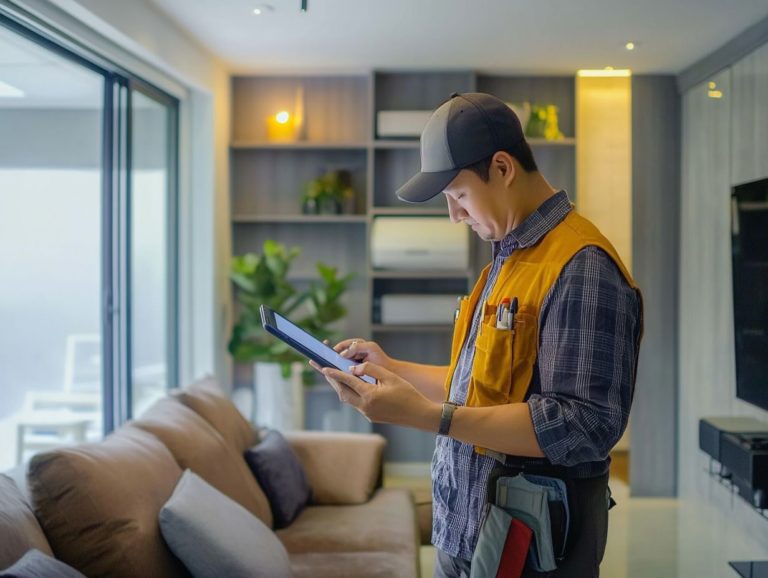How to Prepare for a Home Inspection
A home inspection is an essential part of the buying or selling journey, offering a comprehensive assessment of a property’s condition. This article will guide you in understanding its significance, the necessary preparations to undertake before the inspector arrives, and what you can expect during the inspection itself.
It will also show how to tackle any issues that may surface and provide valuable tips for ensuring a smooth experience. By the end, you will be thoroughly prepared to navigate the home inspection process with confidence and ease.
Contents
Key Takeaways:
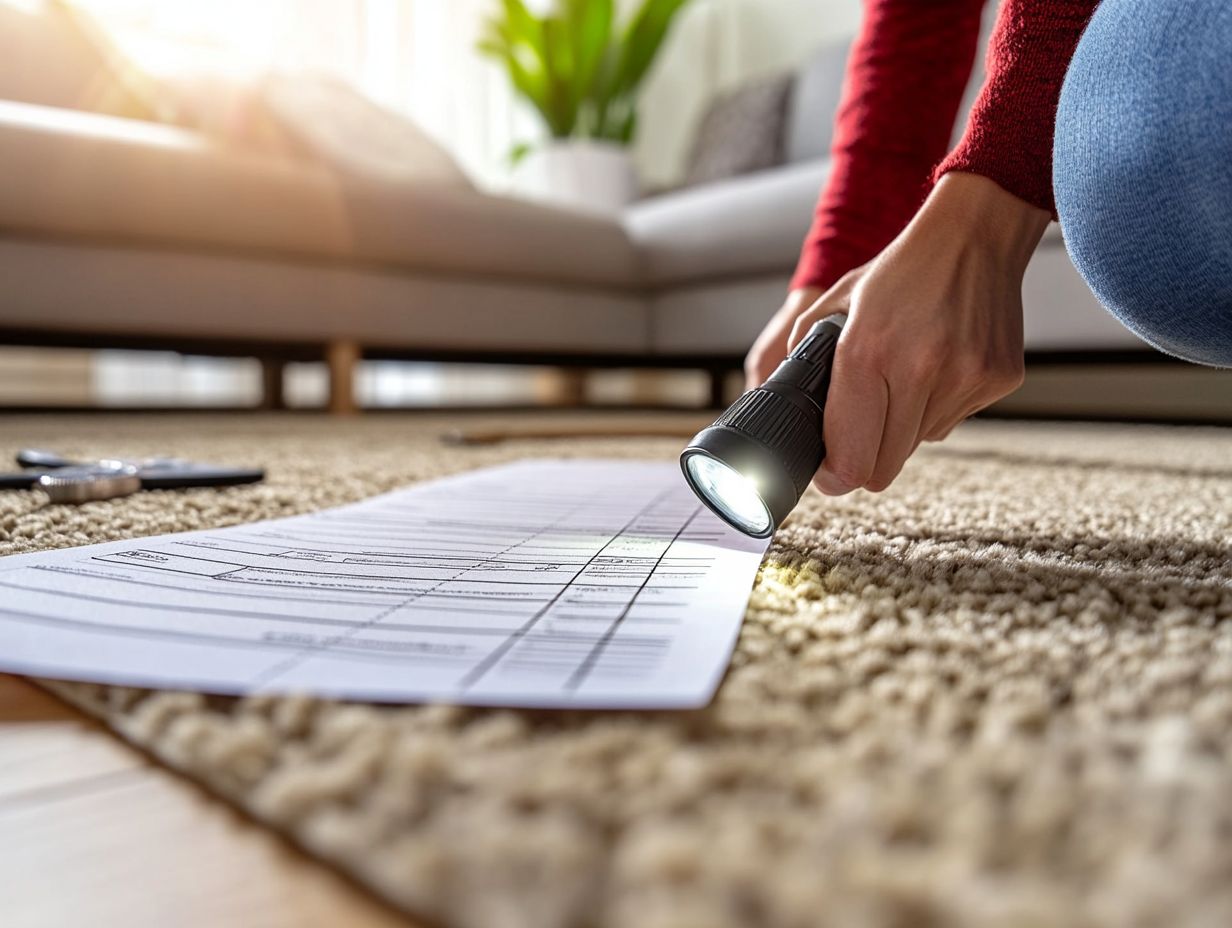
Understand the importance of a home inspection and its purpose in the buying/selling process.
Prepare for the inspection by taking necessary steps beforehand, such as decluttering and making necessary repairs, as outlined in this guide on how to prepare for a successful home inspection.
During the inspection, be aware of common areas and systems that will be inspected and ask questions to gain a better understanding of your home’s condition.
Address any issues found by exploring repair options or negotiating with the other party.
Make a good impression by maintaining a clean and organized home, and be prepared for next steps after the inspection by knowing how to prepare for a home inspection as a buyer.
Understanding the Purpose of a Home Inspection
A home inspection is an essential assessment of a property s condition, offering valuable insights to potential buyers and sellers in the Dothan area. It highlights the structural features, significant defects, and minor issues that could influence the transaction.
Carried out by a qualified home inspector, this process results in a comprehensive inspection report. This report details crucial findings about safety features, plumbing, electrical systems, and beyond, enabling you to make informed decisions about home maintenance or sale.
What is a Home Inspection and Why is it Important?
A home inspection is a thorough evaluation of a property’s condition, designed to find potential problems before a sale, thereby safeguarding the interests of both home buyers and sellers.
This essential process examines various elements of a home, including the foundation, plumbing, electrical systems, and roofing. It ensures that no significant detail goes unnoticed.
For home buyers, these inspection reports can highlight hidden problems that may lead to expensive repairs post-purchase. This makes them invaluable for well-considered choices.
On the flip side, sellers can proactively address issues beforehand. This not only enhances their property’s marketability but also streamlines the negotiation process.
Whether you’re buying or selling, understanding the insights from a home inspection can help set realistic expectations and encourage open discussions about repairs, price adjustments, or closing concessions.
Preparing for the Inspection
Getting ready for your home inspection is key! It can make the whole process smoother and greatly influence the final outcome. As a seller, you should take proactive measures to prepare for a home inspection and ready your home.
This includes keeping utilities on, decluttering spaces, and tackling minor issues that could raise concerns during the inspection. To ensure everything goes smoothly, consider following tips for a successful home inspection day. Focus on critical areas such as the heating, ventilation, and air conditioning system, safety features like smoke detectors and carbon monoxide detectors, and the overall cleanliness of your home.
By doing so, you re not just presenting a well-maintained property; you re also offering potential buyers a reassuring clean bill of health.
Steps to Take Before the Inspector Arrives
Before the home inspector arrives, it’s essential for you to take a few preparation steps that can significantly enhance the outcome of the inspection. Learning how to prepare for a home inspection can make a big difference.
Start by clearing any obstacles from access points. Make sure pathways to crawl spaces and attics are unobstructed, allowing for a thorough inspection.
Trimming back overgrown trees and bushes around your property boosts curb appeal and eliminates potential safety hazards.
It’s vital to ensure that all utilities are operational, as inspectors will need to examine systems like plumbing, electrical, and heating, ventilation, and air conditioning.
Lastly, consider conducting a deep clean, especially in those hidden areas like under sinks or behind appliances. This can reveal issues that might otherwise slip through the cracks and ensures your home is presented in the best possible light.
What to Expect During the Inspection
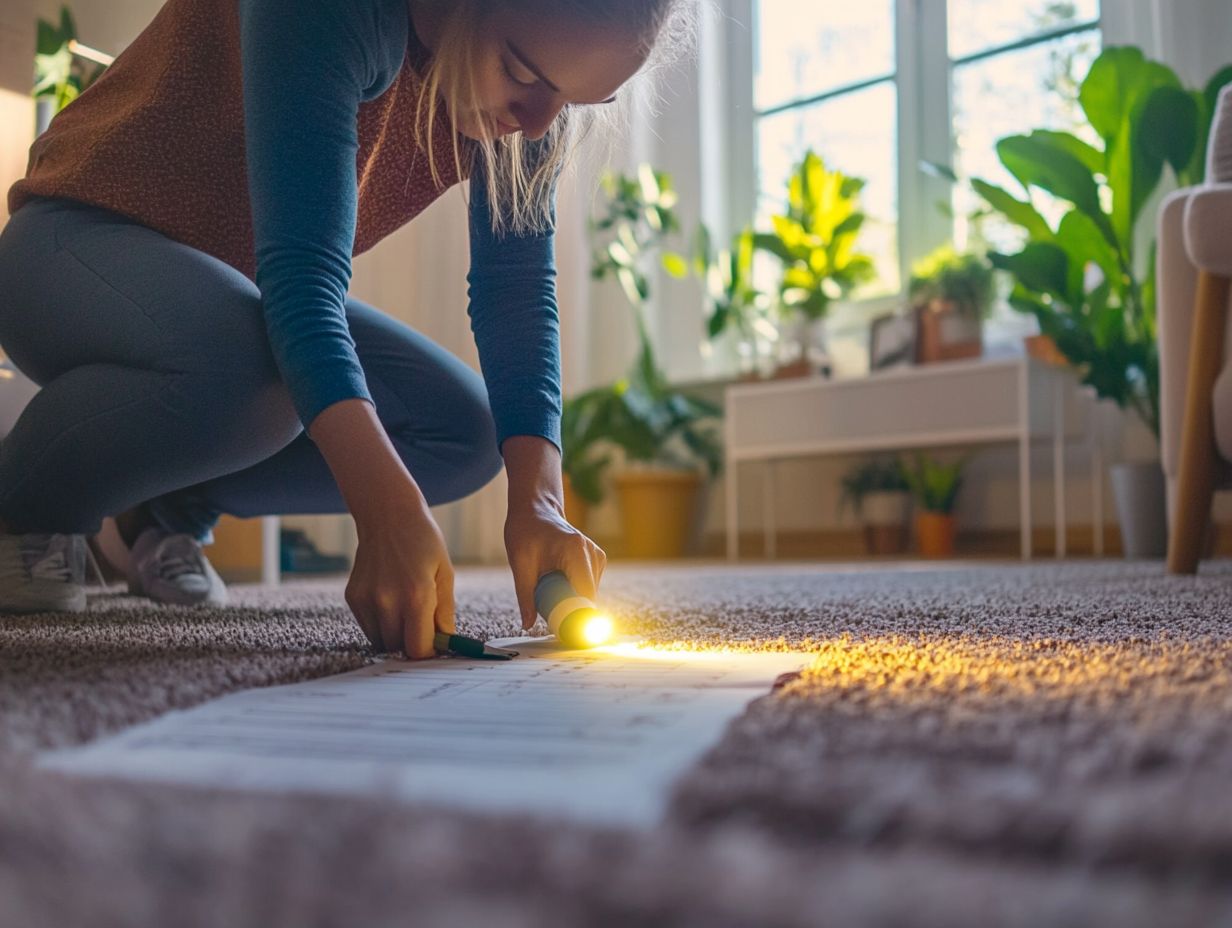
During your home inspection, you can anticipate a comprehensive evaluation of the home’s various systems and components. A qualified home inspector will follow a clear inspection process, examining everything from the property s structural features to plumbing concerns, electrical systems, and safety elements.
At the end of this thorough assessment, you will receive an inspection report that outlines any significant defects or minor issues that may require your attention.
Common Areas and Systems Inspected
The common areas and systems evaluated include the garage, plumbing, electrical systems, heating, ventilation, and air conditioning (HVAC) system, and the foundation crucial elements in assessing the property s overall condition.
Inspectors examine the garage for structural issues, such as cracks in the concrete or signs of water intrusion, which could indicate underlying problems.
In terms of plumbing, they look for leaks, corrosion, and the functionality of fixtures. Any issues here can lead to costly water damage.
The electrical system receives careful scrutiny for outdated wiring and circuit breakers that might not meet modern safety standards, potentially posing fire hazards.
An efficient HVAC system is essential for your comfort. Inspectors check for signs of wear and tear or maintenance neglect that could impact heating and cooling efficiency.
A thorough evaluation of the foundation is crucial. Uneven floors or wall cracks may signal serious structural concerns that demand your immediate attention.
Questions to Ask During the Inspection
Engaging actively with your home inspector is essential. By asking informed questions during the inspection, you can gain a clearer understanding of the property’s condition and any potential issues that may arise.
It’s particularly important to inquire about key safety features, such as the status of smoke detectors and carbon monoxide alarms. Understanding any underlying plumbing issues can save you from future costly repairs, so don t hesitate to ask about the age and condition of the pipes.
Delve into what the inspection report reveals about structural integrity and maintenance needs. Questions like:
- “Are there any signs of past water damage?”
- “How recent are the upgrades to the electrical system?”
can shed light on the property’s readiness for you to move in and its long-term livability. Being thorough in these discussions can greatly influence your investment decision.
Addressing Any Issues Found
Addressing any issues identified during a home inspection is essential for you, whether you’re buying or selling. This can greatly affect your negotiations and final sale price.
The inspection report usually outlines both minor issues and major defects, serving as a clear roadmap for necessary repairs and illustrating how they affect the market readiness of the property.
Options for Repair or Negotiation
After reviewing the inspection report, you must weigh your options for repair or negotiation based on the major defects and minor issues identified.
You have several strategic approaches at your disposal that align with your circumstances and goals. One effective option is to request specific repairs from the seller, which can often result in immediate resolutions that enhance the property’s condition before closing.
Alternatively, you might find it advantageous to negotiate price reductions, allowing you to allocate those funds towards repairs after the purchase.
Another strategy could be to ask for a credit towards repairs, giving you the flexibility to manage improvements at your own pace and according to your preferences.
Each of these choices necessitates careful consideration of the overall transaction and the potential impact on both your immediate costs and long-term satisfaction.
Tips for a Successful Home Inspection
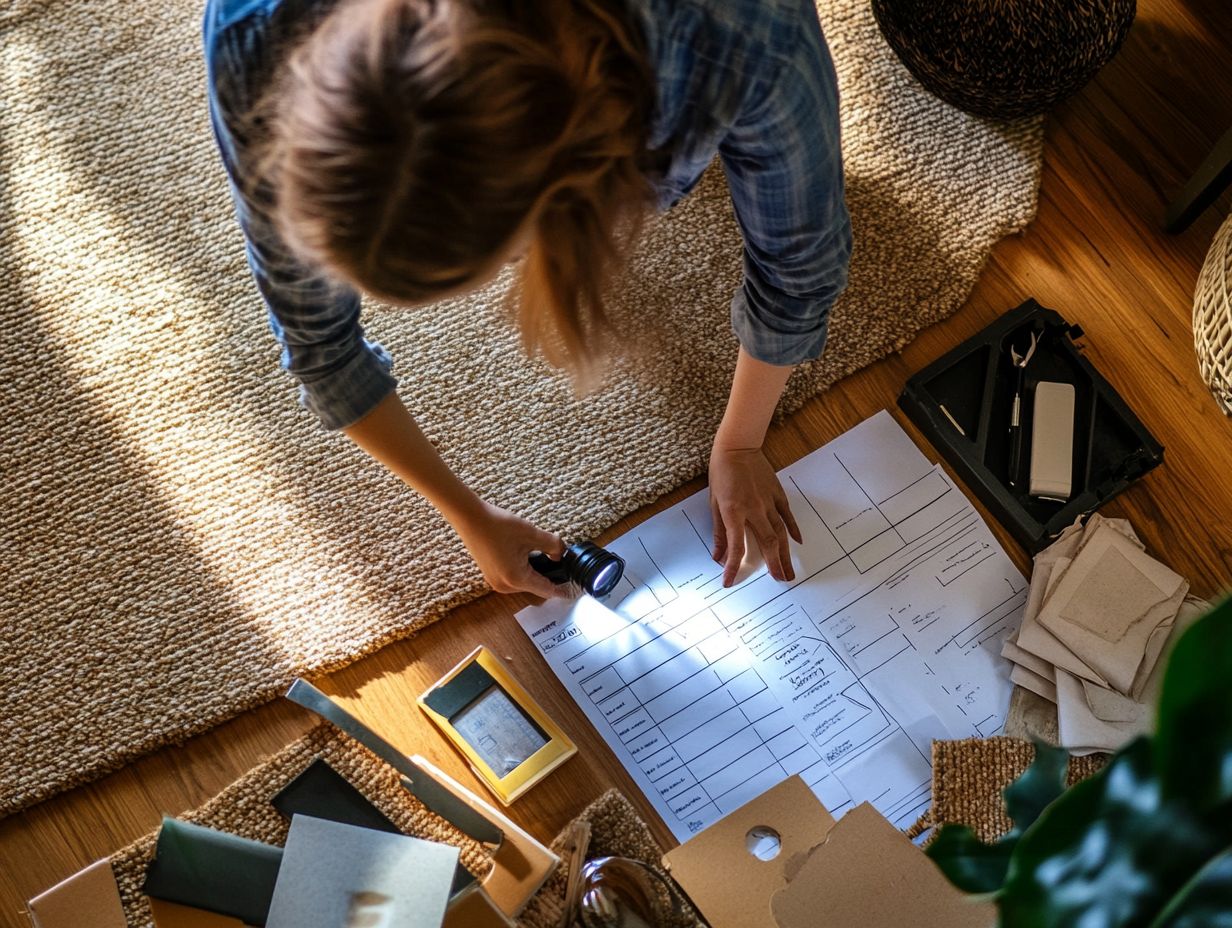
Achieving a successful home inspection demands thoughtful planning and proactive efforts from both home buyers and sellers, especially when preparing for a home inspection as a seller, as first impressions can profoundly impact the results.
Sellers can significantly improve their chances of receiving a favorable inspection report by making the property presentable and tackling any cosmetic issues in advance, as outlined in the guide on what to expect during a home inspection.
Meanwhile, buyers should approach the inspection with an optimistic outlook, ready to see the potential in the home.
Start preparing today to ensure your inspection goes smoothly!
How to Make a Good Impression
Making a strong impression during a home inspection is crucial, especially for sellers who aim to highlight their property’s best features. Follow these essential steps to prepare for a home inspection and don’t miss this chance to showcase your home’s best attributes and secure a favorable inspection report.
Start by decluttering spaces and removing personal items. Craft a neutral environment that resonates with potential buyers. Deep cleaning every corner elevates the home s aesthetics and underscores its well-maintained condition.
Ensure that hidden areas, such as attics, basements, and closets, are tidy and organized. This provides inspectors with a clearer view of the home’s integrity.
By prioritizing these strategies, you significantly enhance the likelihood of leaving a positive impression. This paves the way for a successful sale.
What to Do After the Inspection
After the home inspection, it s crucial for you whether buying or selling to follow up on the findings outlined in the inspection report. Addressing any significant issues promptly is key.
This proactive strategy helps you make informed decisions, making the buying or selling process easier.
Begin by reviewing the inspection report carefully. Grasp the extent of the identified issues. Document all necessary repairs and highlight which items need immediate attention.
By addressing these concerns quickly, you can prevent further complications and ensure the property’s value remains intact.
If you re a buyer, discussing the findings with the seller can open the door to negotiations for repairs or price adjustments. If you re a seller, taking proactive steps to rectify issues beforehand shows your commitment to maintaining the property s condition.
Frequently Asked Questions
What Is a Home Inspection and Why Is It Important?
A home inspection is a thorough evaluation of a property’s condition, usually conducted before the sale or purchase of a home. It is important because it can uncover potential issues or repairs that may need addressing, giving the buyer a better understanding of the property and potentially saving them from unexpected costs in the future.
How Should I Choose a Home Inspector?

It is important to do your research and choose a qualified and experienced home inspector. Ask for recommendations from friends or real estate agents. Make sure the inspector is licensed and certified.
You can also check online reviews and ask for references from previous clients.
What Can I Expect During a Home Inspection?
During a home inspection, the inspector will thoroughly examine the property, including the interior, exterior, and major systems such as plumbing, electrical, and HVAC. They may also check for structural issues, pest infestations, and potential safety hazards.
The inspection typically takes a few hours to complete.
How Can I Prepare My Home for a Home Inspection?
Start by cleaning and decluttering your home. This will make it easier for the inspector to access and evaluate different areas. Additionally, consider following guidelines on how to prepare for a home inspection to ensure all utilities are turned on and any necessary repairs have been completed.
It is also helpful to provide any documentation or paperwork for recent upgrades or renovations.
What If the Home Inspection Uncovers Issues?
If the home inspection reveals any major issues, you may want to renegotiate the sale price or ask the seller to make repairs before closing.
If the issues are minor, you can still ask for repairs or negotiate a lower price. In some cases, you may decide to walk away from the sale altogether.
Can I Attend the Home Inspection?
Yes, it is recommended that buyers attend the home inspection. This allows you to ask questions and get a better understanding of the property’s condition.
However, it is important to let the inspector focus on their job and avoid getting in their way.
Contact us today to find a trusted home inspector!

